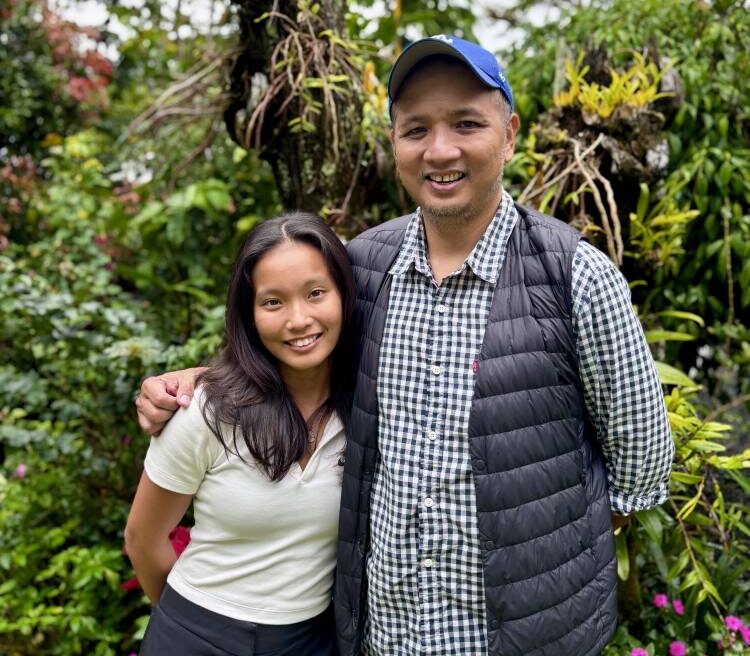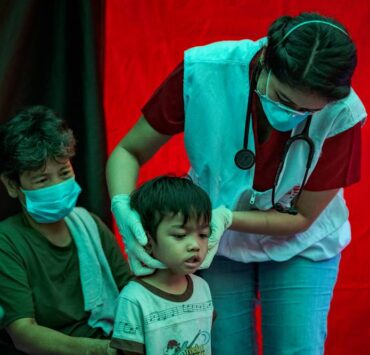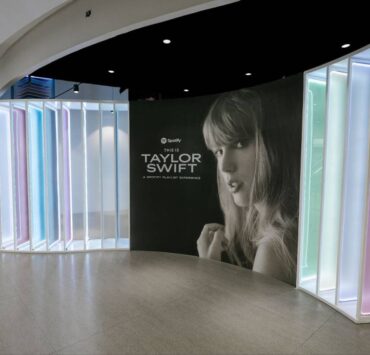A golf prodigy rises from the pandemic

At 15, Anna Kei Fernandez, a Japanese Filipino student, had been playing golf for less than two years when she entered an amateur mini-tournament. Her score was abysmal—an 18-stroke loss.
Joseph “Pipo” Fernandez, Anna’s father, shared the news of her defeat with her grandmother, Carmina. The matriarch’s response was to provide P1.5 million, instructing him to ensure Anna received proper coaching.
Pushing 19, Anna has blossomed into a highly skilled golfer with an impressive 1.5 handicap, which reflects her recent scores and the difficulty of the courses played. In less than five years, her low handicap has demonstrated her consistency and ability to regularly score near par on various courses.
Golf wasn’t part of Anna’s plan, however. In 2020, then a tennis player, she was preparing for the regional meet, hoping to qualify for the Palarong Pambansa. The pandemic, however, forced her to put down her racket.
During the lockdown, she picked up her father’s golf clubs, and he noticed the natural athleticism in her swing. When restrictions eased in June, Cavite reopened its golf courses, partly to provide work for those in the industry. The mayor of Alfonso also permitted outdoor, noncontact activities to allow residents to exercise.
The Fernandez family began playing daily at the nearby Royale Tagaytay Country Club. However, the province’s strict quarantine rules for youth and seniors made this difficult. They managed to play at Splendido Taal Golf Country Club in Batangas, where restrictions were less stringent. Even there, Pipo had to resort to hiding Anna in a refrigerator box in the back of his pickup truck to get her through checkpoints.
4 to 5 rounds a week
With junior golf tournaments still prohibited in 2021, Anna entered her first competition, albeit at the pro level, the Enrique Razon Tournament at Riviera Golf Club, held under a “bubble” format. Despite being the youngest player and the only amateur among the 19 professionals, the rookie golfer finished a respectable 12th.
Pipo underscores that he didn’t push Anna into golf. “She wanted it,” he says.
He sought out the best coaches for her: Marvin Dumandan, Philippine national team head coach Miko Alejandro, and Jose “Jun” Cedo.
Golf is an expensive sport, primarily due to green fees and equipment costs. Eventually, the head of Riviera’s junior golf committee successfully petitioned the club’s board to make Anna’s practice more affordable. The club now allows her to play without a caddie, saving her P800 per round.
“Anna plays four to five rounds a week. Being young, she can carry her own bag,” Pipo explains. “She also has free access to the driving range. And when she represents the club in tournaments, she receives complimentary hotel accommodations and meals.”
Every day, Pipo drives a total of 50 kilometer to and from their home in Alfonso to Riviera in Silang. However, unlike a typical stage parent, he drops her off for practice and picks her up later.
“She has a lot of guy friends in golf. They go out for lunch. I don’t bother her. The only thing that’s important to me is knowing who she’s with,” he says.
Character building
He is proud that his daughter hit holes in one—hitting the ball into the hole in one stroke—on two occasions. “That’s P20,000 for each hole,” says Pipo.
Asked how golf has shaped Anna, her father notes that the sport builds character and develops social skills. “If you’re good at your game, people respect you. Anna has many more friends now. Before, she only associated with people her age. Her current partner at Alabang Country Club is the son of the owner of a vitamin supplement company. He’s in his 40s. She can connect with people much older than her because they respect her golf.”
Last August, Anna’s Japanese mother, Nayori, arranged a tryout for her at the Nihon Wellness Golf University in Ibaraki, Japan, for a potential scholarship.
“I was asked about my scores, tournaments I’d won, and my average driving distance—how far I could hit the ball on the hole,” Anna recounts.
The Japanese coach was impressed with Anna’s accuracy, especially considering her relatively short four years of experience. She was offered a partial scholarship, which could become a full scholarship based on her performance in the four-year Golf Program diploma course. After graduation, the university will assist with job placements within the golf industry in Japan if Anna doesn’t pursue a professional playing career.
Influences
As Anna prepares to leave for Japan in March, she reflects on the influence of her family. “My grandparents spoil me and want me to enjoy myself. My grandmother paid for my equipment. My mom wants me to do everything right and try my best. My dad is the most intense, but I also need someone who pushes me hard. He’s not strict like the typical Filipino dad who wants his children to follow a specific path. He doesn’t force things on me,” Anna says.
When classes begin in April, Anna will also be learning her mother’s language and living independently. “My parents guided me a lot here. In Japan, I’ll be on my own, although it’s a safe environment. We don’t need to cook on weekdays because the school provides meals. I’ll be staying in the dorm, and we’ll do our own grocery shopping and cooking on weekends,” Anna explains.
Pipo admits he’ll miss his only child, but he knows this is what’s best for her. “I want her to grow on her own,” he says.

















